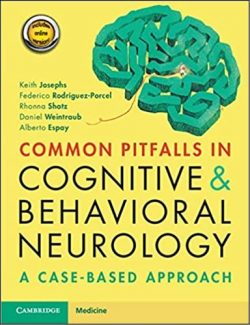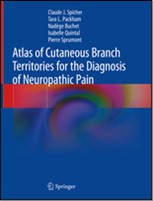The scope of the book includes all neurological problems in infancy. In the first half, it sets out in a succinct format the principles of working with families, of clinical assessment, of the use of investigations and treatments, and of evidence-based medicine. The second, symptom-based half of the book provides detailed guidance on the practice of child neurology in infancy. The authors are distinguished experts drawn from all over Europe. The contributors have approached their chapters using an accessible, didactic style and consistent organization of material. The emphasis throughout is on clinical methods, the use of appropriate investigations and treatments, and the avoidance of unnecessary or potentially harmful interventions. For quick reference, all chapters feature boxes highlighting key messages, common errors, and when to worry. The book is designed to be carried round as a handy reference.
Part 1: Principles of Child Neurology In Infancy
1 Terms, definitions and concepts
Colin Kennedy
2 Interprofessional working: user and carer involvement
Audrone Prasauskiene and Maryze Schoneveld van der Linde
3 Clinical epidemiology and evidence-based medicine
Andrew L. Lux
4 Promoting child development
Audrone Prasauskiene
5 The Neonatal examination and neurodevelopmental assessment
Leena Haataja, Vittorio Belmonti and Giovanni Cioni
6 Neurological examination beyond the neonatal period
Colin Kennedy
7 Prevention, vaccination and Screening
Jane Williams and Colin Kennedy
8 Cranial imaging
Brigitte Vollmer and Harriet Joy
9 Neurophysiology (EEG & aEEG)
Bernhard Schmitt and Varsine Jaladyan
10 Biochemical and haematological testing
Valerie Walker and Mary Morgan
11 Genetic testing
Geoffrey Woods and Catarina Olimpio
12 Drug treatments: drugs, vitamins and minerals
Imti Choonara and Peter Baxter
13 Nonpharmacological treatment
Ilona Autti-Rämö
Part 2: Settings In Clinical Practice
14 Birth Asphyxia and other acute encephalopathies in the newborn
Gian Paolo Chiaffoni and Daniele Trevisanuto
15 Inheritited metabolic encephalopathies of infancy
Barbara Plecko
16 Neontal Seizures
Barbara Plecko
17 Acute encephalopathy and traumatic brain injury
Tiina Talvik, Fenella Kirkham, Tuuli Metsvaht and Inga Talvik
18 Stroke
Fenella Kirkham, Tiina Talvik, Rael Laugesaar, Tuuli Metsvaht and Inga Talvik
19 Acute neurological illness with fever: meningitis, encephalitis and infective space-occupying lesions
Rachel Kneen and Charles Newton
20 Post-neonatal epileptic seizures
Hans Hartmann and J. Helen Cross
21 Non-epileptic paroxysmal disorders in infancy
John B.P. Stephenson and Alla Nechay
22 Microcephaly, including congenital infections
Alasdair Parker, Vlatka Mejaski-Bosnjak and Richard Chin
23 Macrocephaly, including hydrocephalus and brain tumors
Colin Kennedy
24 The floppy infant
Helgi Hjartarson and Thomas Sejersen
25 Infancy sleep and behaviour
Outi Saarenpää-Heikkilä, E. Juulia Paavonen and Kaija Puura
26 Early developmental impairment and neurological abnormalities at birth
Richard W. Newton, Ilona Autti-Rämö and Audrone Prasauskiene
27 Cerebral palsy
Florian Heinen and Peter Baxter
28 Central nervous system disorders of movement other than cerebral palsy
Peter Baxter and Florian Heinen
29 Progressive loss of skills
Meral Topcu, Dilek Yalnızoglu and Richard Newton
Colin Kennedy studied Psychology and Medicine in Oxford and London and, as a postgraduate, in London, Southampton and Johns Hopkins Hospital, Baltimore. He was the founding paediatric neurologist and, for 25 years, clinical lead of the Southampton-based service. He led a series of studies that established the benefit of universal newborn hearing screening and the introduction of patient/parent reported outcomes into European treatment trials for and clinical care of children with brain tumours. He is past president of the BPNA and the EPNS. He works with WHO to ‘level up’ the health care of children with neurological problems across WHO Europe.





